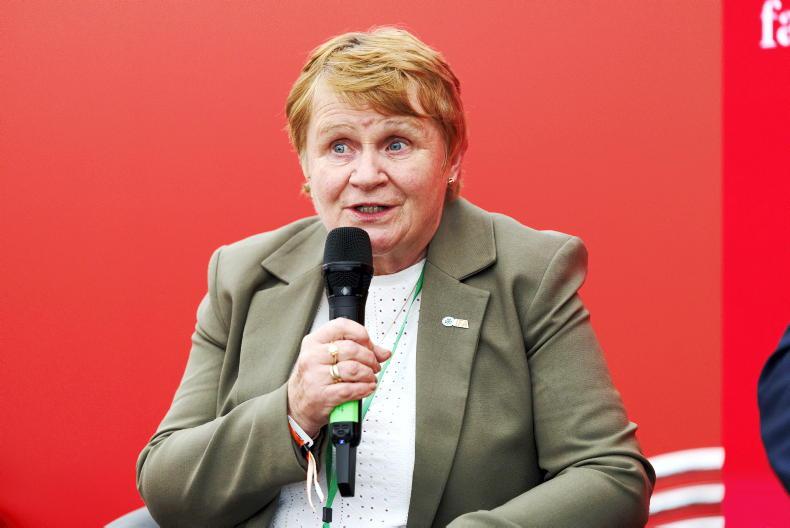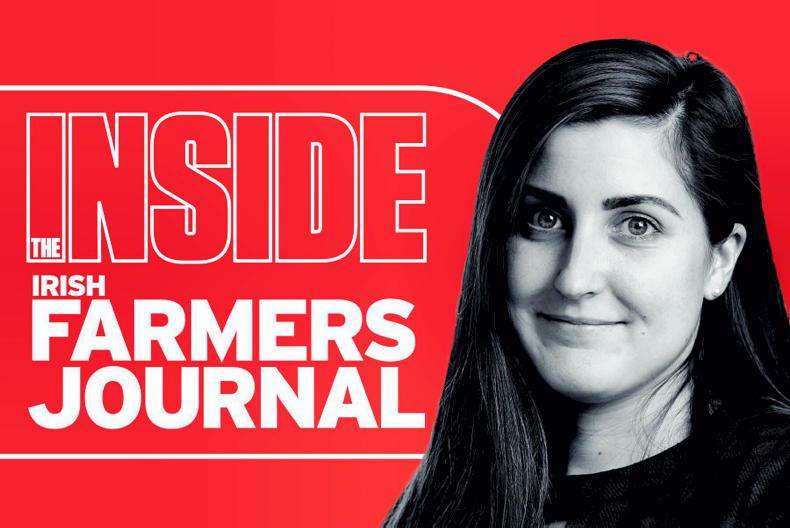The consequences for the Irish economy of a hard Brexit are potentially very damaging but even the softest version will see the end of UK membership in the Common Agricultural Policy.
Much of the downside for agriculture is accordingly not going to be mitigated, even if the British government can no longer command a parliamentary majority for the Brexiteers’ apparent desire for maximum disruption.
Time is beginning to slip away for any meaningful Brexit negotiation to conclude in time for ratification by the exit date of 29 March 2019. The position of the UK government remains, despite prime minister May’s failure to achieve a majority at the election, withdrawal from both the single market and the customs union. This was quite explicit in the Conservative manifesto and there has been no hint of any change from the prime minister.
Britain plans to exit both and will seek a free trade agreement, negotiated as a third country. Various ministers of the Brexiteer persuasion remain convinced, in public at least, that this can be delivered within the time available and at no economic cost. Some, notably the chancellor of the exchequer Philip Hammond, appear to understand that this is pie in the sky and he concedes that there will have to be a transition period.
Pie in the sky
But a no-cost, hard Brexit is pie in the sky in any time frame and the inconsistency will not go away just because there is an extended period for talks. If Britain departs both the single market and the customs union, there is no conceivable free trade deal that will leave the UK economy undamaged.
Departing the single market means the re-emergence of the non-tariff barriers whose elimination was its principal purpose. Departing the customs union means costly customs procedures and delays. It probably means some tariffs too, unless it is replaced with a no-tariffs trade deal, something for which there is no precedent, at least not on this scale. The dilemma for the Conservative party is that staying in the single market, the customs union, or particularly in both, would beg the question nobody wants to address – namely what was the point in quitting the EU at all?
Irish agriculture
For Irish agriculture, the situation is in some ways much simpler. If Britain leaves the EU, it leaves the Common Agricultural Policy framework, even should it choose the Norway option of sticking with the single market, or some Turkey-style arrangement with the customs union. Brexiteers are already citing cheaper food supplies from outside Europe as a Brexit bonus and there is no template for a deal retaining agricultural free trade between the EU and a third country.
The softest possible Brexit, with Britain staying in both single market and customs union, does not deliver CAP-style free trade in food.
Only a decision by the UK to reverse the referendum result and stay in the EU would keep Britain, including Northern Ireland, inside the CAP framework.
The Tory party could split over any row-back from the hard version of Brexit and the Labour party is also split on Europe. Jeremy Corbyn and his supporters have been lukewarm about the EU for decades and there was no Labour manifesto commitment to alter the essentials of the Tory Brexit package. Numerous Labour MPs are not happy about this but the election outcome has muted their opposition to Corbyn.
Progress
The month of July is unlikely to see any negotiating progress and August will see none at all: the Brussels hierarchy will shortly decamp for the Mediterranean beaches. The German election is on 24 September and there may be no serious efforts at negotiations until October.
If the EU-27 are in a mood to be helpful, there could be an agreement on a transition period long enough to do a proper free trade deal. If not, the talks could be fractious and inconclusive, leading to a disruptive no-deal exit. The other possibility is a political realignment in Britain, possibly with splits in both the major political parties and another election.
For Ireland, there are obvious advantages in a soft Brexit. If Britain stays in both the single market and customs union, most of the current trade relations would be retained. But this does not apply to agriculture unless the EU-UK free trade agreement, of which not a paragraph has been negotiated, is more comprehensive than any comparable deal ever agreed.
A soft Brexit is most unlikely to preserve anything approaching current levels of access for food exports to the British market. Britain’s departure means a sharp reduction in EU financial resources and renewed constraints on the CAP budget.
A transition period after March 2019 postpones, but cannot avoid, the ultimate adjustment, including diminished UK market access but also a higher Irish budget contribution and pressure to re-nationalise farm income support.
Read more
Dempsey at Large: UK farmers want access too
Opinion: Ireland must ensure the EU stays together
Full coverage: Brexit
The consequences for the Irish economy of a hard Brexit are potentially very damaging but even the softest version will see the end of UK membership in the Common Agricultural Policy.
Much of the downside for agriculture is accordingly not going to be mitigated, even if the British government can no longer command a parliamentary majority for the Brexiteers’ apparent desire for maximum disruption.
Time is beginning to slip away for any meaningful Brexit negotiation to conclude in time for ratification by the exit date of 29 March 2019. The position of the UK government remains, despite prime minister May’s failure to achieve a majority at the election, withdrawal from both the single market and the customs union. This was quite explicit in the Conservative manifesto and there has been no hint of any change from the prime minister.
Britain plans to exit both and will seek a free trade agreement, negotiated as a third country. Various ministers of the Brexiteer persuasion remain convinced, in public at least, that this can be delivered within the time available and at no economic cost. Some, notably the chancellor of the exchequer Philip Hammond, appear to understand that this is pie in the sky and he concedes that there will have to be a transition period.
Pie in the sky
But a no-cost, hard Brexit is pie in the sky in any time frame and the inconsistency will not go away just because there is an extended period for talks. If Britain departs both the single market and the customs union, there is no conceivable free trade deal that will leave the UK economy undamaged.
Departing the single market means the re-emergence of the non-tariff barriers whose elimination was its principal purpose. Departing the customs union means costly customs procedures and delays. It probably means some tariffs too, unless it is replaced with a no-tariffs trade deal, something for which there is no precedent, at least not on this scale. The dilemma for the Conservative party is that staying in the single market, the customs union, or particularly in both, would beg the question nobody wants to address – namely what was the point in quitting the EU at all?
Irish agriculture
For Irish agriculture, the situation is in some ways much simpler. If Britain leaves the EU, it leaves the Common Agricultural Policy framework, even should it choose the Norway option of sticking with the single market, or some Turkey-style arrangement with the customs union. Brexiteers are already citing cheaper food supplies from outside Europe as a Brexit bonus and there is no template for a deal retaining agricultural free trade between the EU and a third country.
The softest possible Brexit, with Britain staying in both single market and customs union, does not deliver CAP-style free trade in food.
Only a decision by the UK to reverse the referendum result and stay in the EU would keep Britain, including Northern Ireland, inside the CAP framework.
The Tory party could split over any row-back from the hard version of Brexit and the Labour party is also split on Europe. Jeremy Corbyn and his supporters have been lukewarm about the EU for decades and there was no Labour manifesto commitment to alter the essentials of the Tory Brexit package. Numerous Labour MPs are not happy about this but the election outcome has muted their opposition to Corbyn.
Progress
The month of July is unlikely to see any negotiating progress and August will see none at all: the Brussels hierarchy will shortly decamp for the Mediterranean beaches. The German election is on 24 September and there may be no serious efforts at negotiations until October.
If the EU-27 are in a mood to be helpful, there could be an agreement on a transition period long enough to do a proper free trade deal. If not, the talks could be fractious and inconclusive, leading to a disruptive no-deal exit. The other possibility is a political realignment in Britain, possibly with splits in both the major political parties and another election.
For Ireland, there are obvious advantages in a soft Brexit. If Britain stays in both the single market and customs union, most of the current trade relations would be retained. But this does not apply to agriculture unless the EU-UK free trade agreement, of which not a paragraph has been negotiated, is more comprehensive than any comparable deal ever agreed.
A soft Brexit is most unlikely to preserve anything approaching current levels of access for food exports to the British market. Britain’s departure means a sharp reduction in EU financial resources and renewed constraints on the CAP budget.
A transition period after March 2019 postpones, but cannot avoid, the ultimate adjustment, including diminished UK market access but also a higher Irish budget contribution and pressure to re-nationalise farm income support.
Read more
Dempsey at Large: UK farmers want access too
Opinion: Ireland must ensure the EU stays together
Full coverage: Brexit








SHARING OPTIONS